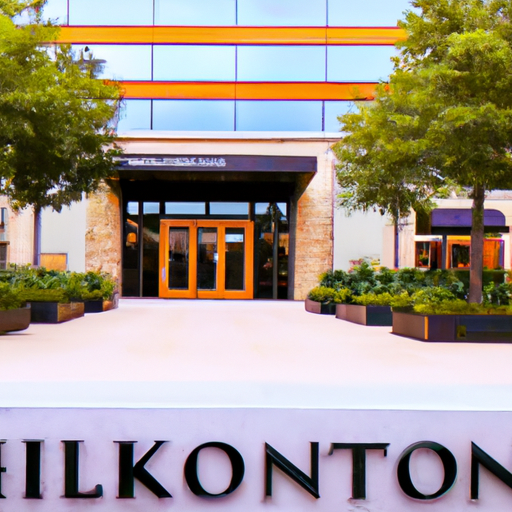Exploring the Impact of MGM Resorts’ Joint Venture on Osaka’s Tourism Industry
MGM Resorts International, a global hospitality and entertainment company, has recently made a significant stride in its international expansion efforts. The company’s joint venture, MGM Resorts Japan, has signed an implementation agreement to develop an integrated resort in Osaka, Japan. This development is expected to have a profound impact on Osaka’s tourism industry, and it’s worth exploring how this venture will shape the city’s future.
The integrated resort, a term used to describe a complex that blends gaming with a wide range of other amenities, is a concept that has gained significant traction in the global tourism industry. These resorts are designed to offer a comprehensive entertainment experience, combining hotels, restaurants, shopping centers, and other attractions with a casino at its core. The idea is to create a destination that appeals to a broad range of tourists, from gaming enthusiasts to families looking for a unique vacation experience.
MGM Resorts’ joint venture in Osaka is expected to bring this concept to life in a big way. The resort, which will be located on Yumeshima Island in Osaka Bay, is set to feature a luxury hotel, a state-of-the-art convention center, a massive casino, and a variety of other entertainment options. The project is expected to cost around $9 billion, making it one of the most significant investments in Osaka’s tourism industry in recent years.
So, what does this mean for Osaka? For starters, the integrated resort is expected to boost the city’s tourism numbers significantly. Osaka is already a popular tourist destination, known for its rich history, vibrant food scene, and unique attractions like Universal Studios Japan and Osaka Castle. The addition of the integrated resort is expected to draw even more visitors to the city, particularly those interested in high-end entertainment and gaming experiences.
Moreover, the resort is expected to create thousands of jobs in Osaka, both during the construction phase and once the resort is operational. This will provide a significant boost to the local economy, creating opportunities for residents and attracting talent from other regions.
The integrated resort is also expected to enhance Osaka’s reputation as a global tourism destination. MGM Resorts is a well-known brand in the global hospitality industry, and its presence in Osaka will likely attract attention from international tourists. This could help to put Osaka on the map as a must-visit destination, alongside other cities with integrated resorts like Singapore and Las Vegas.
However, it’s not just about the economic benefits. The integrated resort is also expected to contribute to the cultural landscape of Osaka. MGM Resorts has expressed a commitment to incorporating elements of Japanese culture and Osaka’s local character into the resort’s design and offerings. This means that visitors will not only have access to world-class entertainment options but also get a taste of what makes Osaka unique.
In conclusion, MGM Resorts’ joint venture in Osaka represents a significant development for the city’s tourism industry. The integrated resort is expected to boost tourism numbers, create jobs, enhance Osaka’s global reputation, and contribute to the city’s cultural landscape. It’s an exciting time for Osaka, and it will be interesting to see how this project unfolds in the coming years.
Understanding the Economic Implications of MGM Resorts’ Integrated Resort in Osaka

MGM Resorts International, a global hospitality and entertainment company, has recently made headlines with its joint venture signing an implementation agreement for an integrated resort in Osaka, Japan. This move is a significant milestone in MGM Resorts’ expansion strategy, and it’s worth taking a closer look at the economic implications of this development.
First off, let’s understand what an integrated resort is. It’s essentially a mixed-use venue that combines hotels, casinos, shopping centers, and other entertainment facilities. The idea is to create a one-stop destination for tourists, offering them a variety of experiences under one roof. Now, with MGM Resorts bringing this concept to Osaka, it’s set to revolutionize the city’s tourism landscape.
The integrated resort is expected to bring a significant economic boost to Osaka. It’s projected to attract millions of tourists each year, which will inevitably lead to increased spending in the city. This influx of tourists and their spending will stimulate the local economy, creating jobs and generating substantial tax revenue.
Moreover, the construction of the resort itself will create a multitude of jobs, providing a much-needed boost to the local employment market. From construction workers to hotel staff, the project will require a wide range of skills and expertise, opening up opportunities for many.
But the economic benefits of the integrated resort extend beyond job creation and tourism. The resort will also serve as a catalyst for further investment in Osaka. As the city becomes a more attractive tourist destination, other businesses are likely to invest in the area, leading to a ripple effect of economic growth.
The integrated resort will also have a positive impact on Osaka’s real estate market. With the influx of tourists and the increased business activity, property values in the area are expected to rise. This will benefit property owners and could lead to further development in the area.
However, it’s not just Osaka that stands to benefit economically from this project. MGM Resorts’ investment in Japan represents a significant opportunity for the company to tap into a new market. Japan’s gaming industry is relatively untapped, and with the country’s government recently legalizing casino gambling, the timing couldn’t be better for MGM Resorts.
The integrated resort in Osaka will be one of the first of its kind in Japan, giving MGM Resorts a first-mover advantage. This could potentially lead to significant returns for the company, boosting its bottom line and benefiting its shareholders.
In conclusion, the economic implications of MGM Resorts’ integrated resort in Osaka are far-reaching. From boosting local employment and tourism to stimulating further investment and development, the project promises to bring significant economic benefits to both Osaka and MGM Resorts. It’s a win-win situation that underscores the potential of integrated resorts as a catalyst for economic growth. As the project progresses, it will be interesting to see how these economic benefits unfold and contribute to the overall growth of Osaka and MGM Resorts.
The Future of Hospitality: A Look at MGM Resorts’ Joint Venture in Osaka, Japan
MGM Resorts International, a global leader in the hospitality and entertainment industry, has recently made a significant stride in its expansion into the Asian market. The company’s joint venture, MGM Resorts Japan, has signed an implementation agreement to develop an integrated resort in Osaka, Japan. This move marks a significant milestone in the company’s strategic growth plan and is set to redefine the future of hospitality in the region.
The integrated resort, a term used to describe a large-scale resort that includes not only a hotel and casino but also a wide range of entertainment and leisure facilities, is a relatively new concept in Japan. The Japanese government only recently legalized casino gambling, opening the door for international companies like MGM Resorts to bring their expertise and innovation to the country’s burgeoning hospitality industry.
The implementation agreement signed by MGM Resorts Japan and the city of Osaka outlines the terms and conditions for the development and operation of the integrated resort. The resort is expected to feature a luxury hotel, a state-of-the-art casino, a convention center, and a variety of entertainment and dining options. The project is also expected to create thousands of jobs and generate significant economic benefits for the city and the region.
MGM Resorts’ joint venture in Osaka is a testament to the company’s commitment to innovation and excellence in the hospitality industry. The company has a proven track record of developing and operating world-class integrated resorts in Las Vegas, Macau, and other key markets around the world. With its extensive experience and expertise, MGM Resorts is well-positioned to bring a new level of luxury and entertainment to Osaka.
The development of the integrated resort in Osaka also represents a significant opportunity for MGM Resorts to expand its footprint in the Asian market. Asia, and particularly Japan, is a key growth market for the global hospitality industry. With its rich culture, vibrant cities, and growing middle class, Japan offers a wealth of opportunities for companies like MGM Resorts.
The joint venture in Osaka is not just about building a resort; it’s about building a lasting relationship with the city and its people. MGM Resorts has made it clear that it intends to work closely with the local community to ensure that the integrated resort is not only a success but also a positive addition to the city. The company has pledged to incorporate local culture and traditions into the design and operation of the resort, and to provide opportunities for local businesses and residents.
In conclusion, MGM Resorts’ joint venture in Osaka is a bold and exciting move that promises to reshape the future of hospitality in Japan. The integrated resort will not only bring a new level of luxury and entertainment to the city but also create jobs, stimulate economic growth, and strengthen the city’s position as a leading tourism destination. It’s a win-win situation for MGM Resorts, the city of Osaka, and the people of Japan.












